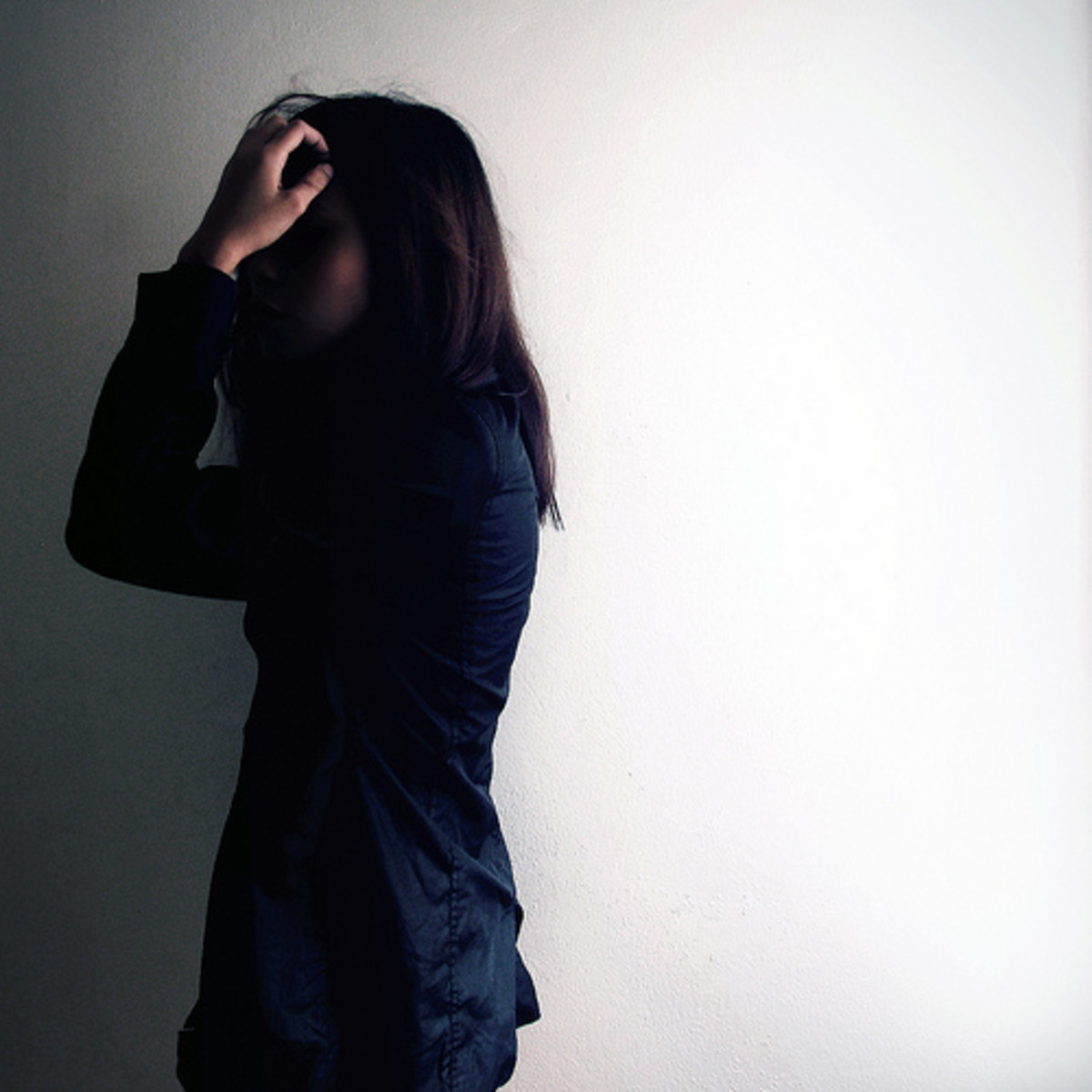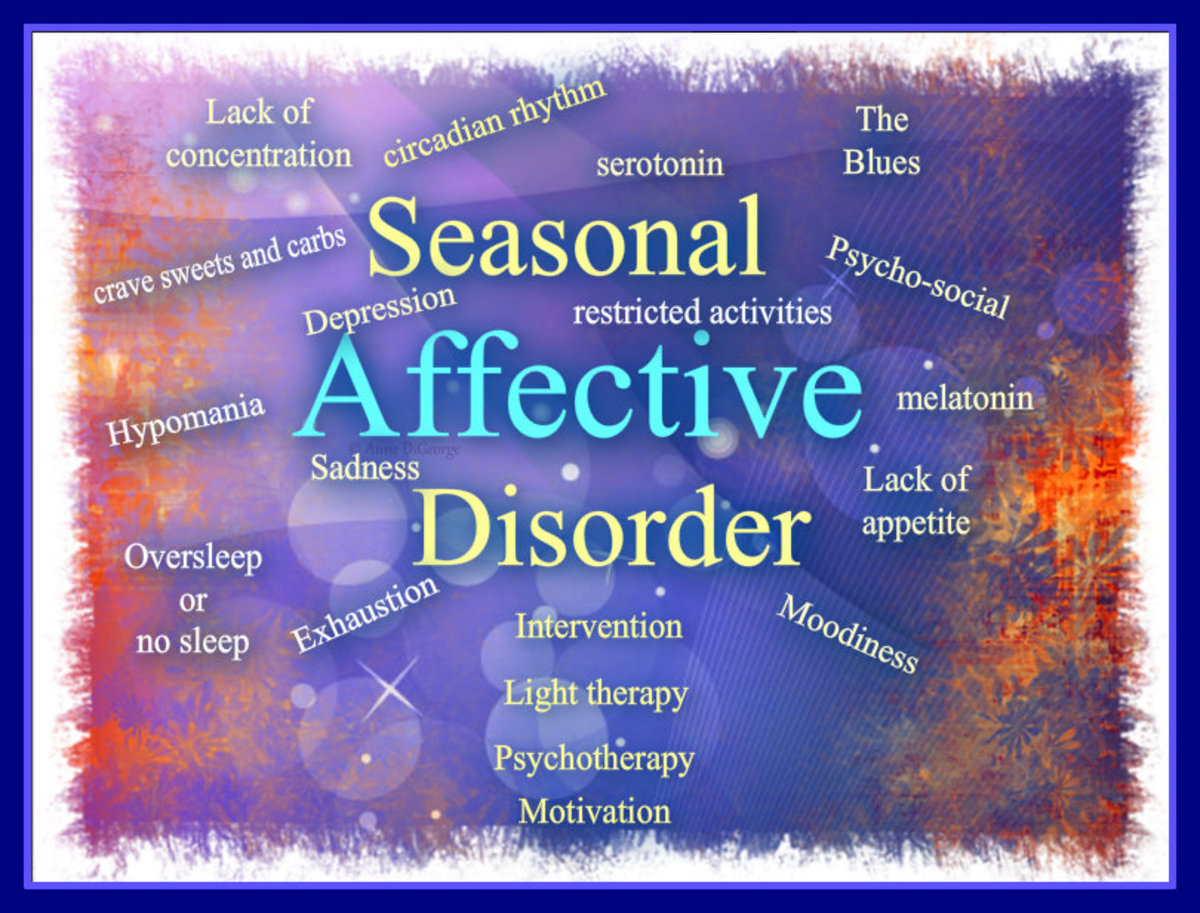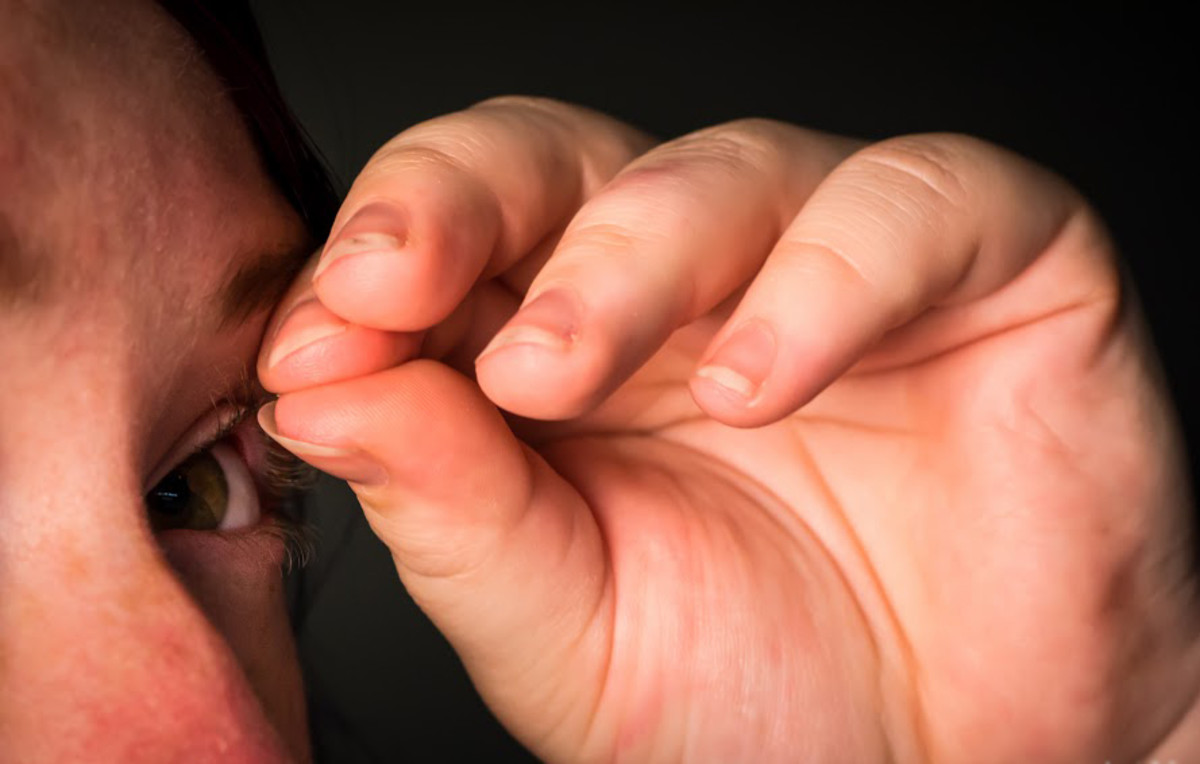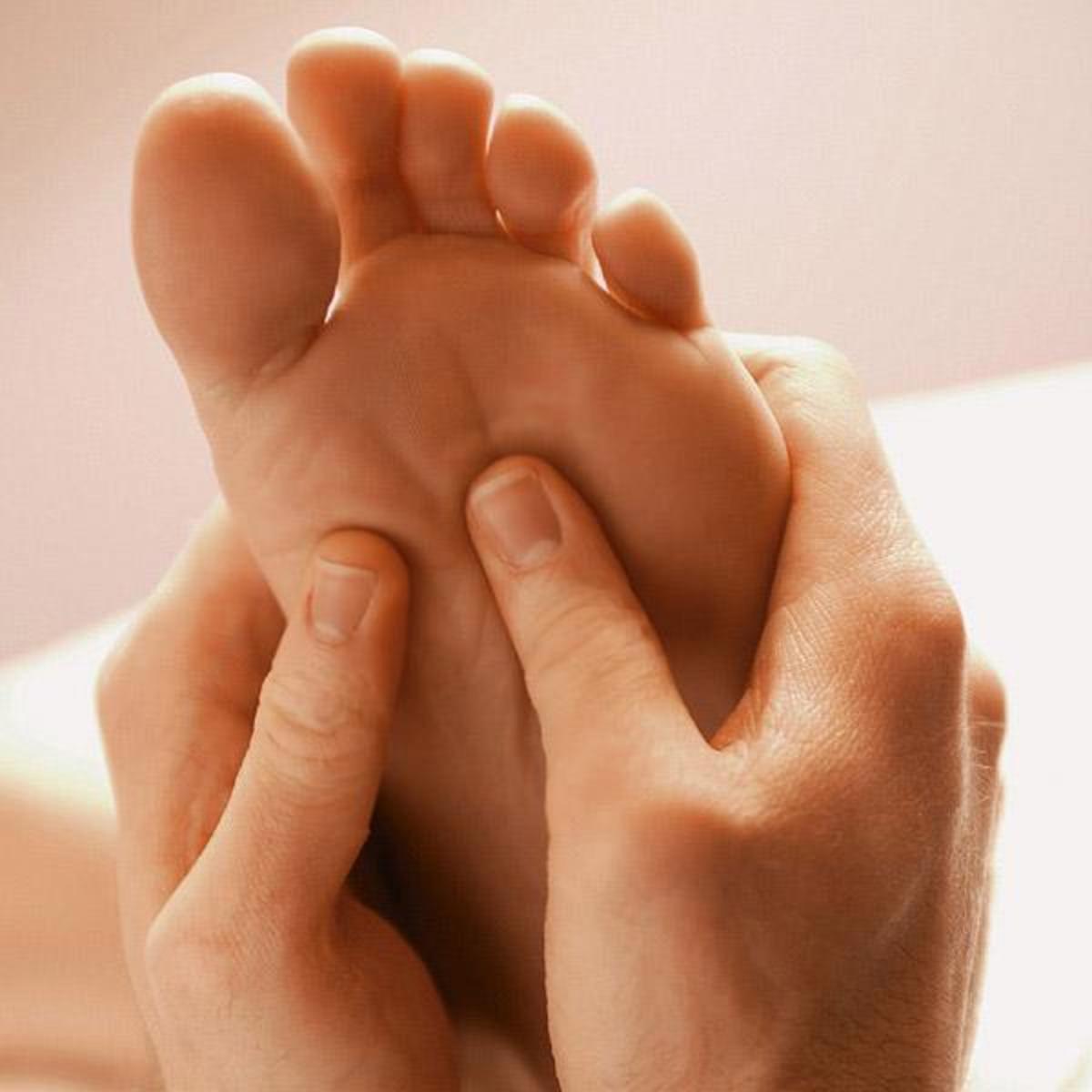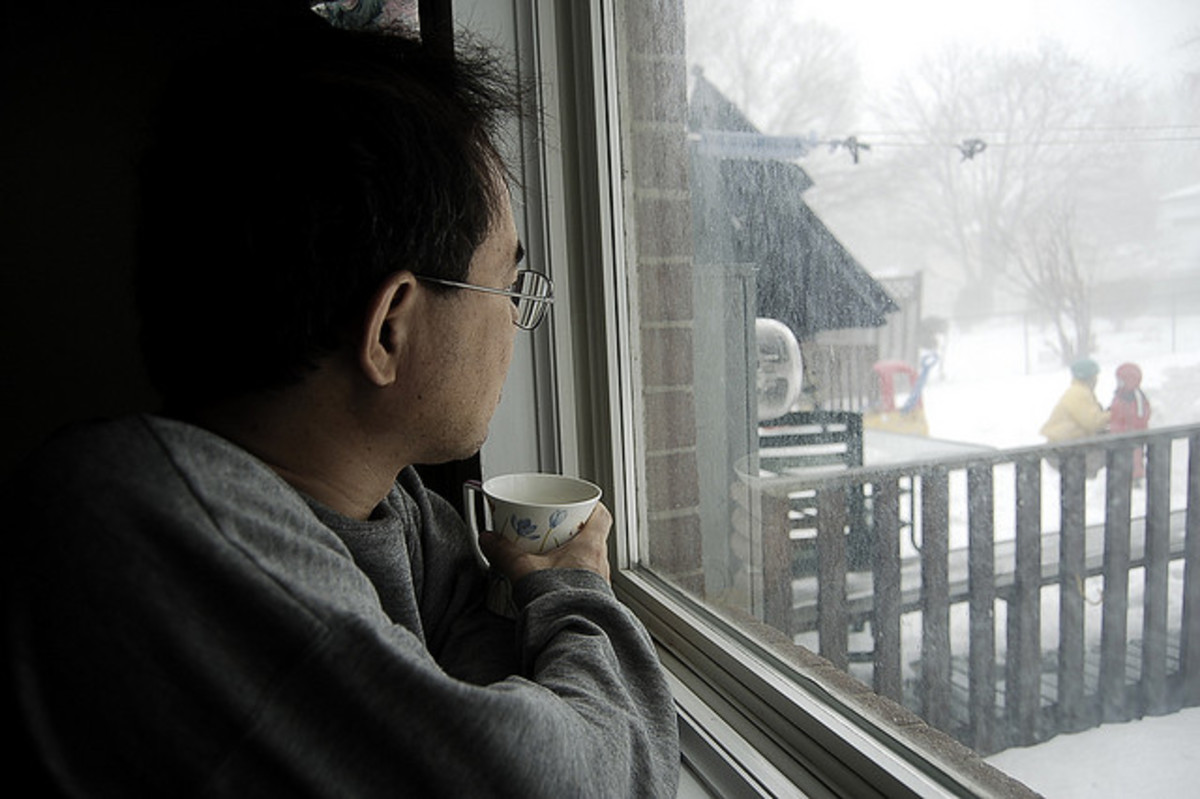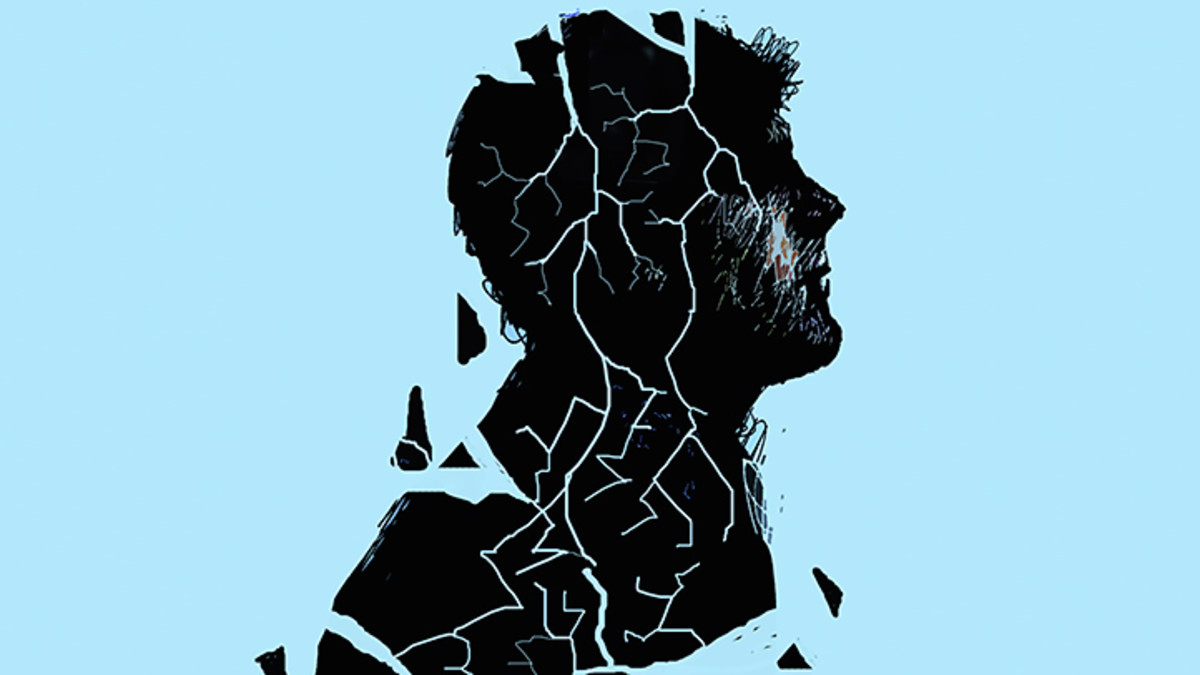- HubPages»
- Health»
- Mental Health»
- Clinical Depression
Winter Blues-Seasonal Affective Disorder Can Be Debilitating

Winter weather brings shorter days and colder weather. Many people complain about a lack of energy and negative mood changes. So called "winter blahs" set in. For some people these negative feelings manifest themselves in a more serious way. It's called Seasonal Affective Disorder or SAD and is also known as the winter blues and seasonal depression. Epidemiologists estimate that 4-6% of the US population suffers from SAD each year. SAD is often misdiagnosed as hypothyroidism, infectious mononucleosis or another viral infection which delays treatment of what can become a debilitating mental disorder.
What Causes SAD?
- Disruption of the 24 hour sleep/wake cycle or Circadian Rythm caused by the seasonal changes in light exposure. Melatonin, a sleep hormone secreted by the brain controls the wake/sleep cycle. It is secreted during darkness and levels off with the morning light. It is thought that people who suffer with SAD may have a circadian rhythm that is out of sync meaning they produce Melatonin too early in the evening and too far into the day. This increased production of Melatonin in the morning causes difficulty in waking up and being alert in the morning and suffering from daytime somnolence and fatigue.
- Low levels of Serotonin, which is a neurotransmitter in the brain that effects happiness and well being and whose rate of production is dependent on the length of exposure to bright sunlight. Deficiency of Serotonin causes the onset of depression. Serotonin is also involved in the regulation of eating and accompanied satiation. Low levels of Serotonin may explain why people with SAD crave carbohydrates which boost Serotonin levels and create a calming effect on the mind.
Use this Self Assessment Tool to See if You Are At Risk for Seasonl Affective Disorder
Are You at Risk for SAD?
There are factors that determine a person's vulnerability and severity of symptoms.
- Geographical location plays a prominent role. SAD is thought to be caused by decreasing natural light and colder temperatures, so the further away from the equator one lives, the higher the incidence.
- There also appears to be a familial tendency. One is more likely to have SAD if a close relative such as a Parent or Sibling has SAD or has been diagnosed with another mental health disorder.
- For reasons not understood by researchers, SAD is more common among women than men.
- It occurs at an average age of 23 but can effect people of all ages including children and adolescents. The risk for a first time occurrence diminishes after the age of 55.
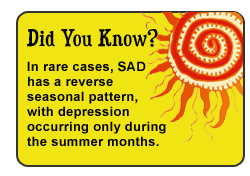
Summertime "Blues"
Symptoms usually start in the late Spring and can include:
- weight loss
- decreased appetite
- decreased interest in socializing
- lack of enjoyment
Spend time in a cooler and less humid environment. Try Nutritional Support and Natural Therapies to ease your symptoms.
SAD Symptoms
Symptoms occur the same time every year. They usually start in the Fall, but may begin as early as August and continue through the winter months, usually until May. The symptoms are usually mild to moderate but may be severe in some cases.
- a decreased level of energy
- moodiness
- irritability
- hopelessness
- crying spells
- anxiety
- oversleeping
- changes in appetite
- a craving for carbohydrates
- weight gain.
- difficulty concentrating
- social withdrawal
- a decreased libido or sex drive
Treatment Options for SAD
Light Therapy is the use of a special lamp with a very bright light that mimics light from the sun. People are advised to sit in front of the light for 30-45 minutes twice daily although studies have shown that light therapy in the early morning produces more therapeutic effect than it does in the evening and that evening therapy may cause insomnia.This treatment should be used with caution on people diagnosed with a Bipolar Disorder as episodes of hypomania or mania may be triggered by Light Therapy.
Stimulants such as Modafinal, Provigil and Ritalin promote wakefulness, better concentration, reduce fatigue and improve SAD symptoms.
Antidepressants such as SSRIs (Selective Serotonin Re-uptake Inhibitors) are used to balance the brain chemicals. They have been shown to increase Serotonin levels but do not consistently regulate levels of Melatonin that naturally fluctuate throughout the day. These medications can have many side effects including nausea, diarrhea, insomnia, daytime somnolence, anxiety, agitation, sexual dysfunction, weight changes and tremors, just to name a few. People that are experiencing mild to moderate symptoms of depression or those that are leary of taking Antidepressants may benefit from viable alternatives.
Cognitive Behavioral Therapy
There are feelings of dread that consume some people because they know how miserable they are during the winter months and this leads to behavioral changes. Some people will anticipate the worst weather scenarios. Based on these thoughts they make a plan on the way they are going to behave. Maybe they plan to hibernate except for going to work. They are setting the stage for a full-blown episode of SAD just by the way they think.
Cognitive Behavioral Therapy can help them to learn how to change their negative thoughts and behaviors which may alleviate some of their symptoms. Through an average of six sessions of therapy people affected by SAD can learn skills to use in the Winter. Once they have learned these skills they can practice them on their own and learn to manage their disorder and its symptoms better.
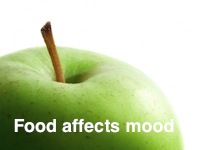
Nutritional Support for SAD
- Tryptophan is an essential amino acid and is necessary for the synthesis of Serotonin. It can be used in conjunction with Light Therapy as it is suggested that they appear to enhance one another but it can also be as effective as Light Therapy and may lengthen the time before a return of symptoms is experienced. Tryptophan can be found in many foods like turkey, cottage cheese and nuts. There are also supplements available.
- Vitamin B deficiency or an insufficient level of Magnesium can both inhibit the eventual conversion of Tryptophan to Serotonin and Serotonin's subsequent conversion into Melatonin. Also, normally fluctuating levels of Magnesium are associated with a healthy Circadian Rhythm. Insufficient levels may result in irregulation of the biological clock and disrupted sleep patterns.
- St. John's Wort is an herb that has been used widely for mild to moderate depression has also been shown to be effective against symptoms of SAD. St. John's Wort should be taken with caution and only under the advice of your MD if you are taking a prescribed antidepressant
- Omega 3 Fatty Acids plays a role in the synthesis of Serotonin and has been shown to be effective against depressive symptoms. An interesting research study was conducted on people who live in Arctic Regions that should logically have a higher incidence of SAD due to their distance from the equator. Icelandic people that consume large amounts of Omega 3 Fatty Acids in coldwater fish actually have very low rates of SAD.
- Vitamin D. Research has shown that Serotonin production is the lowest in the Winter months when exposure to bright sunlight is decreased. With less exposure to sun light the levels of Vitamin D are also decreased. Supplementation of Vitamin D during the Winter months appeared to improve the mood of people with SAD
Natural Therapies
- Yoga
- Guided Imagery
- Massage Therapy
- Meditation
- Hypnosis and Healing
Be Consistent With Your Treatment
Which ever course of therapy you and your Physician choose, remember to stick to it! Be consistent.
- Take care of yourself
- Get proper rest and take time to relax
- Take a trip to a warm and sunny location!
- Maintain good nutrition
- Exercise regularly
- Manage your stress with one of the Natural Therapies suggested
- If you are partiticipating in Cognitive Therapy take the time to practice the skills you have learned to modify your behavior and manage your negative thinking
- Socialize instead of hibernate! Connect with friends. You will have fun and maintain important relationships and possibly have the opportunity to talk about how you are feeling. Talking with a close friend about what's going on with you is always therapeutic!

